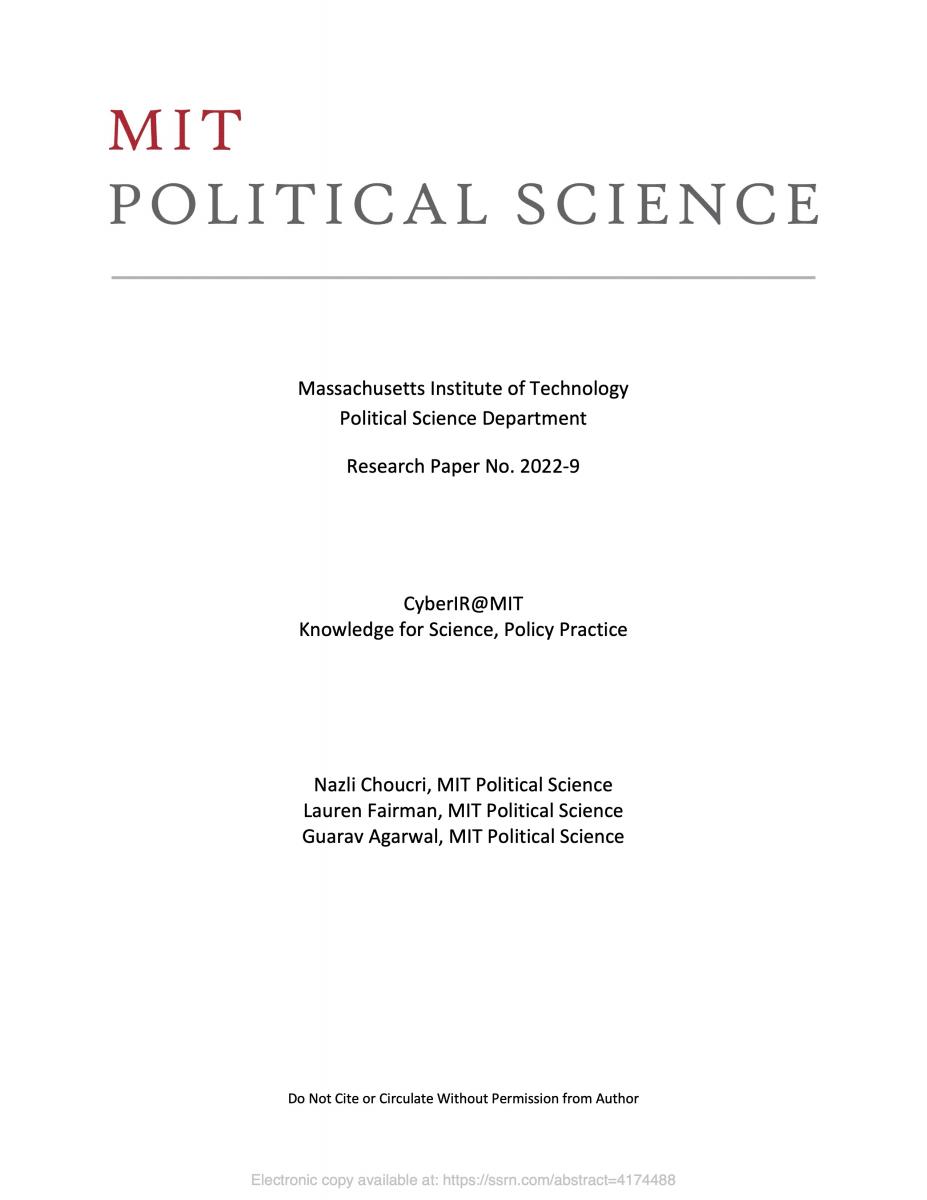See below Expanded Domain ontology for Governance & Institution
Dimension 1 -- System State:
1.1 State Level
- A. Provision of Public Services
- 1. Physical Infrastructure
- 2. Social Infrastructure
- 3. Political & Legal Infrastructure
- 4. National Security
- B. Governance Mechanisms
- 1. Demand Management
- 2. Political Processes
- 3. Economic Process
- 4. External Activities and Policies
- C. Governance Capabilities
- 1. Capabilities of Political System
- 2. Policy Formulation & Delivery
- 3. Management of Government Capabilities
- 4. e-Governance
- D. Provision of Data & Statistics
- 1. State Data & Meta Data
- 2. Cyber Data & Meta Data
- 3. Institution Data, Other
- 4. Review, Update, Other
1.2 International Level
- A. Private International Activities
- 1. Business and Corporate Activities
- 2. Not for Profit & Voluntary Activities
- 3. Private-Public Activities
- 4. Other
- B. International Institutional Activities
- 1. Mission-Driven Activities
- 2. Capacity-Building
- 3. Regional Institutions
- 4. Other
- C. Coordinated Policy Responses
- 1. Cooperative Strategies
- 2. Sanctions & Pressures
- 3. Military Actions
- 4. Other
- D. Treaties, Conventions, & Global Accords
- 1. Type & Focus
- 2. Norms, Instruments, & Enforcement
- 3. Cybersecurity Treaties
- 4. Cyber & Cybersecurity Law
1.3 Governance of Cyberspace
- A. Private Authority & Mechanisms
- 1. Type & Function
- 2. Actors
- 3. Process & Producs
- 4. Activites & Other
- B. International Governance
- 1. Technical Protocls, BGP & Other
- 2. Service Provider (ISP) & Exchange Point Managers
- 3. Certificate Authorities
- 4. Other
- C. Cyber Diplomacy
- 1. Conflict Avoidance
- 2. Informal Activities & Accord
- 3. Interaction Processes
- 4. Other
- D. Formal Regulations
- 1. Source & Type
- 2. Actors & Entities
- 3. Instruments
- 4. Enforcement
1.4 Provision of Statistics & Records
- A. Data & Meta Data
- 1. Traditional Indicators
- 2. Cyber-Related Indicators
- 3. Variables
- B. Routing & Peering Data
- C. ISP & Exchange Points Data
- D. Other
Dimension 2 -- Problems of Governance & Institutions:
2.1 Sources of Problems & Threats
- A. Expansion of Population Demands
- 1. Demand for Equity
- 2. Demand for Political Participation
- 3. Changes in Demand Composition
- 4. Other
- B. Erosion of Institutional Performance
- 1. System Overload
- 2. Conflict Over Goals and/or Policy
- 3. Challenges to Regime Legitimacy
- 4. Erosion of Law & Order
- C. Contentions in Views and Values
- D. Generativity
2.2 Threats to State & Society
- A. Damages to Markets
- B. Shortages of Goods & Services
- C. Growth of Illegal Activity
- D. Other
2.3 Damages to Networks & Infrastructure
- A. Energy & Industry
- B. Information, Communication & Mobility
- C. Food & Agriculture
- D. Water Systems & Other
2.4 Erosion of Life Supporting Properties
- A. Energy
- B. Food & Water
- C. Air, Space & Security
- D. Other
Dimension 3 -- Technological & Scientific Responses:
3.1 Government Mechanisms
- A. Efficiency
- 1. Reward Performance
- 2. Provide Benefits & Services
- 3. Reduce Operational Barriers
- 4. Other
- B. Accountability
- 1. Feedback & Adaptation
- 2. Responsiveness
- 3. Connection to Constituencies
- 4. Other
- C. Equity
- D. Adaptation
3.2 Communication & Network Supports
- A. Expand e-Governance
- B. Control Cyber Threats
- C. Enhance e-Capability
- D. Other
3.3 Technology & AI for Governance
- A. Context Control
- B. Application
- C. Innovation
- D. Critiques
3.4 Evaluation, Feedback & Action
- A. Methods
- B. Review
Dimension 4 -- Socio-Economic & Political Responses:
4.1 State Capability & Performance
- A. Demand Management
- B. Governance Mechanisms
- C. e-Governance
- 1. Service Provision & Performance
- 2. Feedback & Accountability
- 3. Capability Expansion
- 4. Other
- D. Adaptation & Change
4.2 Coordinated International Action
- A. Policy Development
- 1. International Consultation
- 2. World Conferences
- 3. Private-Public Activities
- 4. Informal Measures
- B. Policy Response Type
- 1. Formal Accords & Agreements
- 2. Bilateral & Regional
- 3. International Responses
- 4. Informal Measures
- C. Private Sector Norms & Policy
- D. Data Based Measures
4.3 International Treaties & Convention
- A. Cyber-IR Agreements
- 1. International Policy Conferences
- 2. Conventions, Directives, Treaties
- 3. Global Standards
- 4. Other
- B. Traditional International Relations
- 1. Agenda 21 & Follow-up
- 2. Millennium Development Goals & Follow-up
- 3. State-Based Initiatives
- 4. Non-State Activities
- C. Ongoing Consensus Building
- 1. World Summit on the Information Society (WSIS)
- 2. World Congress on Information Technology (WCIT)
- 3. World Social Science Forum (WSSF)
- 4. Other
- D. Other
4.4 Global Initiatives & Innovations
- A. Non-State Centered
- B. Profit vs. Not-for-Profit
- C. Alternative Boundary Conditions
- D. Other



